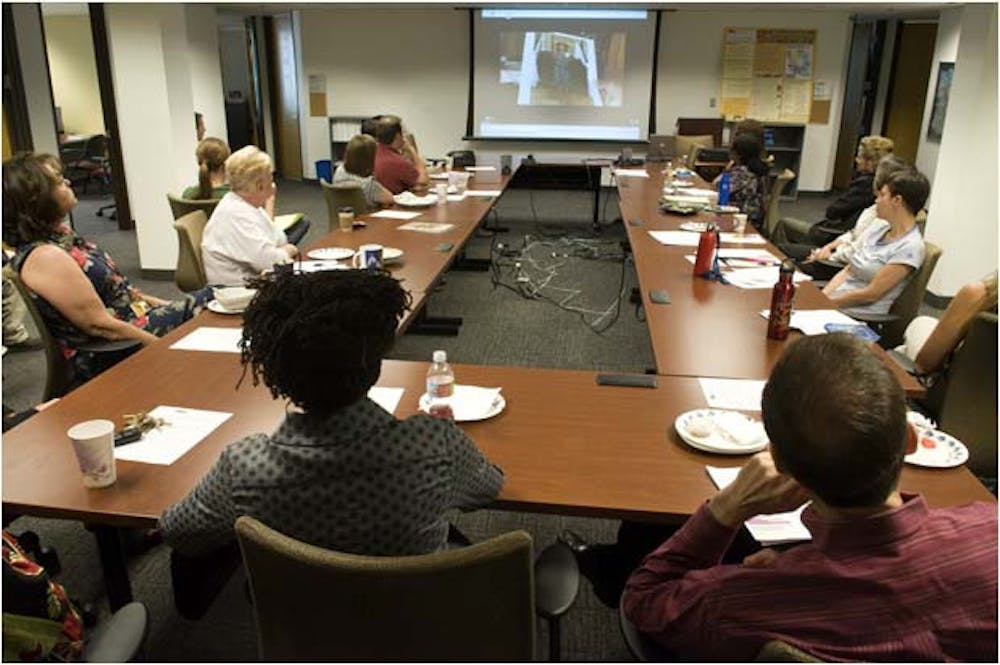Racism and its link to premature birth was the topic of discussion at a meeting held at ASU Wednesday, which concentrated on how the stress of racism in minority females leads to premature birth and infant death.
The Southwest Interdisciplinary Research Center, which held the meeting, is an exploratory facility that conducts transdisciplinary research in minority and disparity health, manager Paul Christensen said.
“We focus on the characteristics of culture to improve overall health,” he said.
The discussion followed a Public Broadcasting Service documentary about how racism-related stress affects African-American women and the birth of their children.
The premature mortality rate for African-Americans is twice as high as Caucasian Americans, the documentary reported.
The discussion stayed in line with the documentary and discussed different stress factors among minority women and how stress can be measured.
Perla Vargas, assistant professor of Social and Behavioral Sciences, raised topics concerning the measurement of discrimination in African-American and Hispanic women.
ASU sociology professor Steven Haas suggested a more experimental approach to the measurement of discrimination rather than an observational method.
“Over time, people become less reactive because their bodies become more adapted [to everyday stress],” Haas said. “Subject [women] to stress and measure stress reactivity.”
A more experimental approach to measuring racism stress would be more specific and would help identify causality, Haas said.
Leslie Reeves, a community research liaison, said racism and discrimination start at a very young age.
When minority children do not understand what racism is, and it happens to them, Reeves said they internalize it and think there’s something wrong with them.
Reeves said racism-related stress could start as early as elementary school when children play at recess and a kid is turned away because a fellow student didn’t want to play with a minority peer.
“They internalize that,” Reeves said, “They say, ‘What’s wrong with me?’”
Racism is among the many issues that SIRC addresses in its research.
The center began its health disparity research in 2007, Christensen said, in order to identify cultural strengths and values that will produce healthy outcomes.
The center targets health disparities such as drug abuse, mental health and HIV/AIDS in a variety of cultures, he said.
The center is currently working on substance abuse in urban American Indians and Latino adolescents, Christensen said.
Reach the reporter at sarah.hotchkiss@asu.edu.




